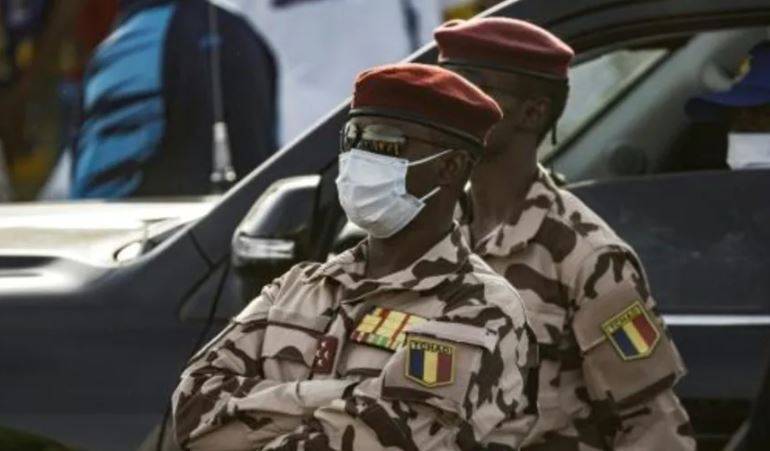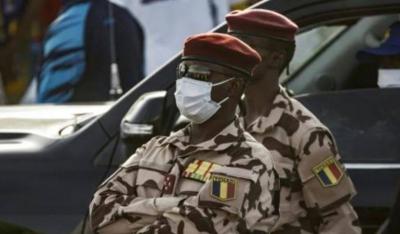The ruling military council in Chad announced on Sunday evening its refusal to negotiate with the rebels who launched an attack against the capital two weeks ago, accusing them of killing President Idriss Déby Itno during the clashes. The spokesperson for the military council, Azem Bermandoa Agouna, stated in a statement read on national television "Tchad 24" that the military is determined to control the rebels, and urged neighboring Niger to assist Chad in "capturing" the leader of the "Front for Change and Concord in Chad" (FACT), Mahdi Ali. The spokesperson emphasized that "the time is not for mediation or negotiation with outlaws." He continued, "Chad calls on Niger to cooperate and stand in solidarity (...) to facilitate the capture of war criminals and bring them to justice."
FACT had expressed readiness for a ceasefire on Saturday after mediation began on Friday between the army and the rebels by the presidents of Niger and Mauritania, members of the G5 Sahel group (Chad, Mali, Mauritania, Niger, and Burkina Faso). Nigerien President Mohamed Bazoum contacted the rebel leader Mahdi Ali, according to an advisor to the president. Mahdi Ali stated on Saturday evening to AFP, "We responded to the mediation from Niger and Mauritania (...) and confirmed our readiness to comply with a ceasefire." However, he noted that the Chadian army was still bombarding his forces. On Sunday, Chadian forces accused FACT rebels, particularly their leader, of fleeing into Nigerien territory. Nevertheless, Mahdi Ali confirmed in a phone call with AFP that he remains in Chad, specifically in the Kanem province near Niger, approximately 400 km north of N'Djamena. He also responded to the military council's rejection of negotiations, saying, "If they want war, we are ready. If we are attacked, we will respond."
An African diplomatic source indicated that "in its response to the Front for Change and Concord in Chad, which has received support from Chadian rebel movements based in Libya or Sudan without currently engaging their forces in battle, N'Djamena feels it has international support." The source pointed to the presence of French President Emmanuel Macron at the funeral of President Déby on Friday, with France being a long-standing ally of a nation considered one of the poorest in the world, ruled by Déby with an iron fist for over thirty years. Macron pledged in a speech that "France will not allow anyone, neither today nor tomorrow, to endanger Chad's stability and security."
Fierce battles occurred as FACT rebels, positioned in Libya on Chad's northern border, passed through Niger while advancing around the capital N'Djamena in mid-April, according to several sources. The Chadian army halted the rebels' advance on Monday in Kanem, aided by "reconnaissance and surveillance" flights conducted by the French army, killing 300 rebels in the battles, according to the Chadian army. Various sources late in the week confirmed to AFP that the clashes were very bloody "on both sides," according to an African diplomatic source in N'Djamena. The Chadian army did not declare a death toll but reported on Sunday the deaths of "dozens of Chadian soldiers." Following these battles, the army spokesperson announced on Tuesday the death of Idriss Déby due to injuries sustained on the front lines.
The late president's son, General Mahamat Idriss Déby (37 years old), head of the Republican Guard, assumed the presidency surrounded by 14 of the generals closest to his father. He holds full powers but has promised to establish new institutions after "free and democratic" elections he committed to holding in a year and a half. Approximately 12 heads of state gathered in N'Djamena to honor Déby, a key ally of the West in combating jihadists in the region. The leaders of the G5 Sahel countries unanimously declared at the funeral ceremonies their support for the military council. The new regime not only faces battles with the rebels but also contends with internal threats, as rumors have circulated in N'Djamena since Déby's death about potential splits within the army. A general from the Zaghawa tribe, to which Déby belonged and which controls the security apparatus, stated on Wednesday that there are "two camps" within the army, although this could not be verified by an independent source.




